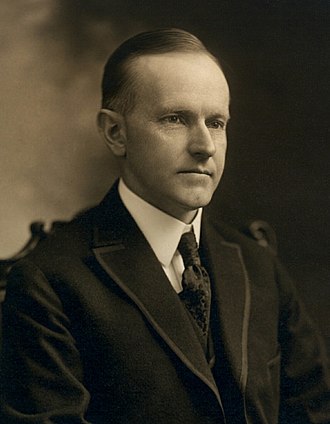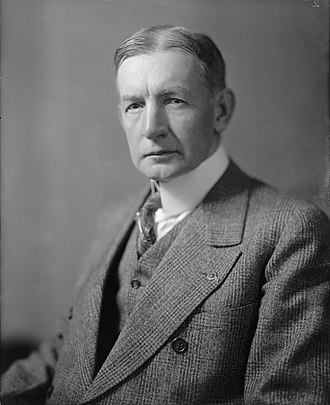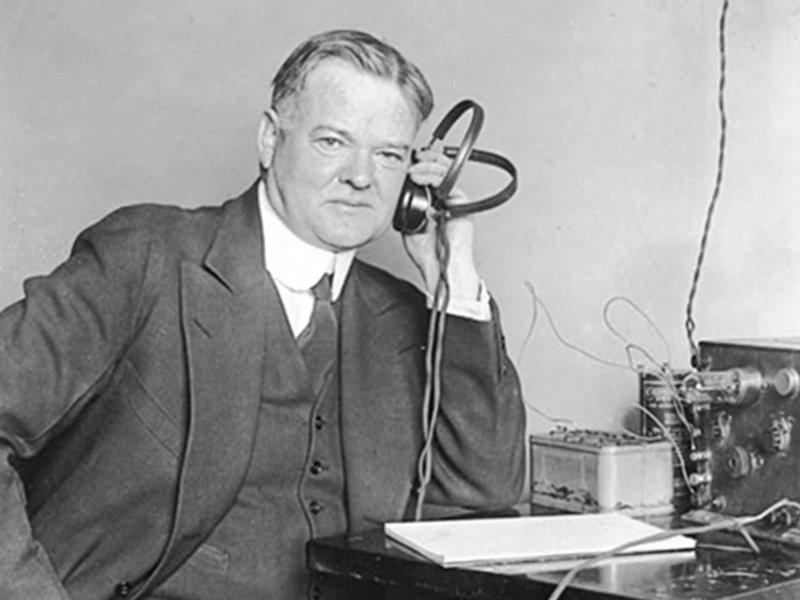I'd like to say that I am happy to see this TL nominated for a Turtledove, I never expected that!
Its a Great Timeline. I'm eagerly waiting myself the Presidency of Hearst.
I'd like to say that I am happy to see this TL nominated for a Turtledove, I never expected that!
Link
Its a Great Timeline. I'm eagerly waiting myself the Presidency of Hearst.


Not much he can do.Ooh, some interesting drama here. I look forward to seeing what Hearst does to get even.
Oh shit! That was unexpected. The GOP will likely take congress in the midterms, but let's home the Ds can hold until the great depression, when Hoover can win







When America needs help:

He answers the call! HOOVER 1928!!!!!!
In all seriousness, that deal with the house and the senate was a good one politically.
So Mexico is where the smuggling is coming from? Did Capone move to LA

America had just seen two presidents serve for approximately one year each. Into this situation came Milford Wriarson Howard. During the impeachment hearings for William Randolph Hearst, some people decided to look into possible charges for the vice president. None were found. Howard had made a name for himself in the 1890s as an opponent of corruption. Americans were hoping for a return to the days of clean government found under William Jennings Bryan. When he assumed office, he made certain that government officials were following the same rules as everyone else. The bootleggers that would deliver to the President and Congress were banished. He also waged a campaign (with mixed success) against corruption in the judicial system. Howard was a largely respected figure among the population as a whole.
-Excerpt from The Guide to the Executive Mansion, an in Depth Look at America's Presidents by Benjamin Buckley, Harvard Press, 1999.

(Milford Wriarson Howard)
The first thing Howard did was increase border security. Communist rebels in Northwestern Mexico were being provided weapons by sympathetic Americans. Moreover, Americans were getting illegal alcohol from Mexico. On April 20, 1926, four Americans were killed by Mexican bootleggers in Eagle Pass, Texas. Howard declared that America would find those responsible and bring them to justice. And sure enough, in May US Cavalry crossed the border into Coahuila and found the individuals believed to be responsible. Six were shot while five were wounded and captured. Mexican President Álvaro Obregón protested the disrespect for Mexico’s borders, but Howard did not care. The American people were happy to see an example made of the criminals.

(Álvaro Obregón)
President Howard had successfully distinguished himself from his predecessor. However, he still knew that the Democrats were still going to have a hard time in the upcoming midterm elections. Hearst was still on people’s minds. In addition, Senate Democrats were defending seats they won during the landslide of 1920. Unbeknownst at the time, Hearst was funneling money into primary challengers and Socialist candidates in Massachusetts (The Massachusetts Democratic Party strongly supported his impeachment) and elsewhere. November went surprisingly well for Democrats. They only lost 5 seats, meaning that control of the Senate would be tied. They lost 26 seats in the House, which left the chamber with no majority party. Democrats had 243 seats, the Republicans had 245, and the Socialists had 13.
Republican and Democratic leaders in both the House and Senate met to determine what to do. There was widespread opposition to allowing Socialists to have any sort of influence on House leadership. In the end, Democrats agreed to give Republicans control of the House while Republicans agreed to confirm whoever Howard appointed as Vice President, which effectively gave the Senate to the Democrats. The New House Speaker would be Charles Dawes. The new Vice President would be Governor George White of Alaska. The Socialists were disappointed, but they had reasons to be happy. While the House elections were a wash (they lost two seats and gained two seats), they won their first governorship. Gil Corey, former Basketball player for the Idaho Silvermen, won his state’s gubernatorial race with 35% of the vote. Socialists would also benefit from the increasingly hard-handed policies of the federal government towards the Southwest.


(Left: George White, Right: Charles G. Dawes)
The violence on the border would not stop. The Mexican government lost control of Tijuana on December 1, 1926. Leon Trotsky, who had been hiding in the Sonoran desert after failing to take the city in 1924, soon returned. The number of American guns going to Mexico and Mexican alcohol going to the United States skyrocketed. Before the fall of Tijuana, liquor smuggling had typically been done through relatively small gangs originating from either side of the border. Now, the leftist rebels got involved in illicit alcohol trade. The rebels took over privately-owned wineries and breweries in Tijuana and sold the alcohol to crime syndicates in the United States. They used the profits to buy more weapons. In 1925, when prohibition began, Tijuana had largely been pacified and Southern Californians had an easy way of obtaining alcohol. Now Americans were afraid to cross the border. Thirsty Californians now had to go to the gangs for refreshment.
Thus began the California Gang Wars. They were most prominent in Los Angeles and San Diego, but people were killed as far north as San Francisco. Local law enforcement was either unable to deal with the increase in crime or was bought off by the mob. In Los Angeles, remnants of the BTS and the White Workers’ Association took the law into their own hands and engaged in vigilantism. The federal government responded by increasing the number of troops on the border. Most of the soldiers went to California. Back east this was largely supported due to fear of Communism. Thousands were arrested, many of whom turned out to be innocent. For some, their only crime was looking Mexican. Residents of Southern California of all races would soon come to describe the situation as “martial law.”

(Some people benefited greatly from prohibition)
While much of what happened during the 1927 crackdown was unethical or even unconstitutional, crime went down. However, the rebels were on the offensive. Larger amounts of the border came under rebel control by the summer. By this point Arizona became the place to smuggle alcohol. The Mexican government, now losing territory, begged for American help. Howard agreed, but Congress had to approve. Some congressmen argued against intervention because the Mexican rebels were not all Communists. Others argued that a war with the Mexican rebels would be much more costly than the war with the Venezuelan rebels. But in August, Congress approved of an invasion of rebel-held territory in Northern Mexico. It took a few days to capture Tijuana and within three months the rebels had been almost entirely vanquished in Baja California and Sonora. American troops had pacified the North and withdrew in 1928.

(US troops in Sonora)
In 1927 Milford Howard met with the German ambassador to discuss American membership in the Alliance of Nations. The Alliance of Nations (AON) was founded in 1925 by Britain and Germany as an organization for international cooperation. One of its goals was to combat the spread of Communism. It was headquartered in Copenhagen and it included the United Kingdom, Germany, Austria-Hungary, Italy, Portugal, and Denmark. Congress approved a referendum on membership in the AON for 1928. Congress also narrowly voted against recognition of the Kingdom of Spain as the legitimate Spanish government. However, Secretary of State George McClellan Jr. stated that the United States will keep Puerto Rico from falling to Communism.
The American economy since 1918 had generally been in good shape. This was especially true during the early ‘20s. America was the world’s strongest economy. However, during the Howard administration things began to change. Inflation became a problem towards the end of the Walsh administration, but the rate of inflation was not catastrophic. On November 1, 1927, the most important event of the decade occurred. The stock market crashed. Some economists trace the crash back to crop failures, but others say that it was more complicated. A few have put partial blame on a drop in the price of silver. Nevertheless, the market crash would be disastrous for the US and world economies. Unemployment skyrocketed.
People’s anger at the system was taken advantage of by both the right and the left. Many began to question their support for Bimetallism. Millions of Americans were told that this sort of thing wouldn’t happen in a country with free silver. The Socialists also took advantage of the situation. It was soon noticed that France and Spain were not nearly as negatively affected by this depression as the capitalist nations were. The Howard Administration responded by calling for higher corporate taxes, which barely passed. Congress also approved of some government work programs. The Rural Relief Bureau was bloated even further. It still didn’t solve the economic crisis.
-Excerpt from America's Silver Age, Edward S. Scott, Patriot Publishers, 2017.
For a real poop show for the election of '28, have this "lovely" senator be the Democratic nominee:

Can't confirm how the election will go by every state but I think 20's Dixie will be enthused for the Democratic nominee. And it won't be primarily over the issue of the tariff.
P.S. "Lovely" in this case means evil m*********. And remember, I'm someone who barely cusses.
Will the Mexican bootleggers rise in influence in Mexico? If they have enough money from the prohibition days (when prohibition ends), they can always fin other criminal ventures.
Will Germany come soon?A chapter on Latin America is coming before too long.
President Ellison Smith? That would be literal Hell on Earth.
I'd like to say that I am happy to see this TL nominated for a Turtledove, I never expected that!
You deserve a nomination.
Will Germany come soon?
I'm sorry if this was already covered, but I was wondering if ITTL the Democratic party is the nation's majority party. Not what their present situation in congress or in gubernatorial mansions, but whether the majority of Americans are registered Democratic (during this time in OTL majority of Americans were registered Republicans, and in my Bryan TL majority of Americans (by 1900) are registered Democratic).
I'm also curious by how the Mormon block is split up politically, as well as the mestizo and black populations as of now.
Also, will West Virginia become a Democratic stronghold with the miners shortly or no? I'm still surprised Hearst lost it.
When America needs help:
He answers the call! HOOVER 1928!!!!!!
In all seriousness, that deal with the house and the senate was a good one politically.
So Mexico is where the smuggling is coming from? Did Capone move to LA